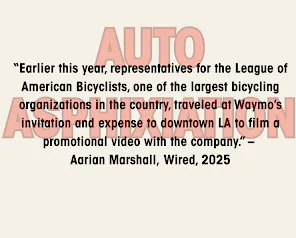Sprawlism focuses unflinchingly on the climate emergency engulfing the New York/New Jersey metropolitan region. We are in crisis. This newsletter uses feminist urbanism as its critical lens—examining how our cities and suburbs perpetuate vulnerability, demanding solutions rooted in equity, collective action, and a fundamental reimagining of how we share space.
For two decades, my work has centered on the intertwined crises of climate and urbanism, viewed through the specific lens of feminist urbanism. This framework isn't merely about gender parity—equality in city planning; it’s about intentionally designing communities where all genders possess the agency and resources to shape lives of their own choosing.
At its core, feminist urbanism demands that one's income should not dictate where one lives, and one's gender should not dictate one's income. It champions the utility of cooperation and collective action, prioritizing people-centric and environment-centric metrics over market-driven ones to forge fundamentally new social and spatial relationships.
This perspective finds resonance in a climate success story—The restoration of the Ozone Layer. I study this all the time and I tell it to my students—first its alarming depletion, then the unprecedented global collaboration—among nations, agencies, communities, and, surprisingly, even market-driven corporations—that reversed the damage. That happened. Cooperation worked, and it was very recently.
This stands as a vital blueprint, demonstrating that concerted human action can avert anthropogenic catastrophe. It offers tangible hope amidst the escalating climate emergency.
Yet, translating such cooperation to the urban scale demands confronting a fundamental obstacle—the tyranny of political boundaries, The reason I always try to shift focus to functional boundaries stems from a stark reality: our adherence to arbitrary political lines is lethally counterproductive. These borders fragment collective action precisely where radical integration is essential for survival.
Consider transportation: thinking as "the New York Metro working class" yields more potent solutions than divisions of town, race, or school district. A small Essex County town, politically isolated, lacks the power to implement vital infrastructure like usable bike lanes precisely because control over major arteries resides with entities operating on a functional, regional scale.
The distortion is equally pernicious in measuring climate progress. Los Angeles City’s political boundaries artificially inflate its environmental record. Altadena, functionally inseparable from the LA metropolis, experiences its climate impacts—like devastating wildfires—yet these events stain "political LA's" record only if they occur within its arbitrary lines. This isn't just bureaucratic absurdity—it's a dangerous delusion.

We chronically undervalue county and regional governance, reserving seriousness for cities. While understandable in fragmented metropolises like LA or NY, this neglect is sheer madness in smaller counties like Essex, where piecemeal, city-by-city solutions squander precious time and political capital on a warming planet.
Critically, these political boundaries of power serve to reinforce hierarchical social divisions: race, class, and crucially, gender—women are over 50% of the population. Suburban isolation, particularly for women, was not a passive accident of history. The Single Family Home Fetish was an active mechanism of control, deliberately designed to enforce domesticity and uphold the dominance of white patriarchal norms – treating women and the home as property within a hegemonic order.

Therefore, overcoming the climate crisis is inseparable from overcoming a deeper antisocial crisis—the pervasive impulse to control the "other," objectified as monster or beast of burden. This crisis traps us in a mindset of scarcity, competition, and territorial battle. Our survival hinges on rejecting this.
We must embrace the shared stewardship of space—with each other and the non-human —natural world—as our paramount collective project. Only by dismantling the structures of dominance embedded in our very geography can we forge the functional solidarity the climate emergency demands.








